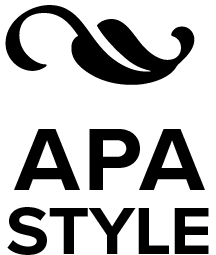Upaya Penurunan Agresif Pada Anak Pra-Sekolah Dengan Social Skills Training Therapy
Keywords:
Social skills training, aggression, preschool childrenAbstract
Aggressive in children is one of the big social problem because it can be a tendency that can persist into adulthood. Social skills training Therapy is needed to improve the social skills of pre-school children in order to build and maintain a positive relationship with the surrounding environment. This study aims to determine the effectiveness of social skills trainning therapy for aggressive pre-school children. The research design was quasi-experimental pre-post test with control group. The sampling technique was proportionate stratified random sampling and found the number of respondents 24 children were divided into 2 groups, 12 children given therapy social skills training and 12 children as control. Data were collected before and after therapy and then compare the results between the two groups. Statistical analysis showed a decrease in the aggressive in the group receiving social skills training therapy were significantly higher (pvalue < 0.05) compared to the control group.
References
Babakhani, N. (2011). The Effects Of Social Skills Training On Self-Esteem And Aggression Male Adolescents. Social and Behavioral Sciences , 30, 1565 – 1570. 1877-0428
Buss, A. H., & Perry, M. P. (1992). The Aggression Questionnaire. Journal of Personality and Social Psychology, 63, 452-459.
Campbell, S.B. (2002). Behavior problems in preschool children: Clinical and developmental issues. New York: Guilford Press.
Eggen, P. & Kauchack, D. (1997). Educational Psychology. Windows on Classrooms. Third Edition. Columbus. Ohio: Merill, an imprint of Prentice Hall.
Hayes, E. (2003). Tantrum: Panduan memahami dan mengatasi ledakan emosi anak (Wahyuni R. K., pen.). Jakarta: Erlangga.
Huesmann, L. R., Dubow, E. F., & Boxer, P. (2009). Continuity of Aggression From Childhood to Early Adulthood as a Predictor of Life Outcomes: Implications for the Adolescent-Limited and Life-Course-Persistent Models. Aggressive Behavior Research, 35, 136-149.
Istiqomah, U. (2005). Panduan praktis berdasarkan penelitian selama 6 tahun: Merawat dan mendidik anak. Surakarta: Widya Duta Grafika.
Kadarharutami, A. (2011). Sukses mengasuh anak usia 3-6 tahun. Jakarta: Direktorat Pembinaan Pendidikan Anak Usia Dini Direktorat Jenderal Pendidikan Anak Usia Dini Nonformal dan Informal Kementerian Pendidikan Nasional
Kim, M.J., Doh, H.-S., Hong, J. S., & Choi, M.-K. (2011). Social skills Training And Parent Education Programs For Aggressive Preschoolers and Their Parents In South Korea. Children and Youth Services Review 33, 838–845.
Kotch, J. B., Lewis, T. Hussey, J. M., English D., Thompson R., & Litrownik, A. J. (2008). Importance of early neglect for childhood aggression. Jurnal Pediatrics, 121, 7-10.
Mashar, R. (2011). Emosi anak usia dini dan strategi pengembangannya. Jakarta: Kencana Prenada Media Grup.
Naseri, A., & Babakhani, N. (2014). The Effect Of Life Skills Training On Physical And Verbal Aggression Male Delinquent Adolescents Marginalized in Karaj. Social and Behavioral Sciences, 16, 4875-4879.
Ostrov, J. M. (2006). Deception and subtypes of aggression during early childhood. Jurnal Experimental Child Psychology Elsevier, 22, 2-4.
Papalia, Old, & Feldman. (2008). Human Development (Psikologi Perkembangan). Jakarta: Kencana.
Stuart, G. W. (2013). Principles and practice of Psychiatric Nursing. (10th ed). St. Louis: Mosby Year Book
Vahedi, S., P., Eskandar. Fathiazar, P., S. Davood Hosseini-Nasab, P., Mohammad Moghaddam, P., & Arezu Kiani, M. (2007). The Effect of Social Skills Training on Decreasing the Aggression of Pre-school Children. Iran Journal
Vugt, E. S. v., Dekovi?, M., Prinzie, P., Stams, G. J. J. M., & Asscher, J. J. (2013). Evaluation of a group-based social skills training for children with problem behavior. Children and Youth Services Review 35, 162–167.
Tremblay, R. E., Nagin, D. S., Seguin, J. R., Zoccolillo, M., Zelazo, P. D., Boivin M., et. al. (2004). Physical aggression during childhood: Trajectories and predictors. Jurnal American Academy of Pediatrics, 114, 44-48.
Tremblay, R. E. (2008). Understanding development and prevention of chronic physical aggression: Towards experimental epigenetic studies. Jurnal The Neurobiology of Violence: Implication for Prevention and Treatment, 2613-2622.













